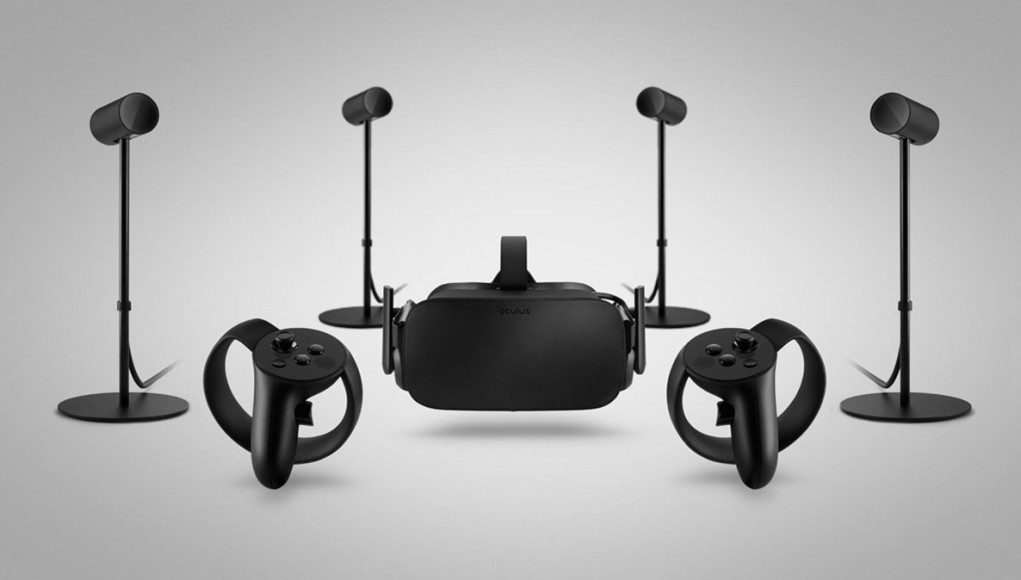Oculus’ most recent platform update, 1.11 was designed to improve tracking performance for experimental room-scale tracking setups with two or more Sensors. For some users however, the update seems to have made things worse. Oculus has now acknowledged the lingering issues and promises that the next two updates will aim to address the problem.
It isn’t clear how many users have been impacted by the lingering room-scale tracking issues in the Oculus 1.11 update, but communities like the Oculus section of Reddit have seen numerous posts since the update with users reporting lingering issues such as a misaligned virtual floor, and occasional jumps in sensor position. Users experience the problem are seeing inconsistent performance in tracking of Touch controllers, causing clear frustration by those who have invested in the relatively pricey VR hardware.
Brendan Iribe, head of the Rift team at Oculus, recently weighed in on the issues on a post in which reddit user phoenixdigita1 shared what they claimed was a fifth video recorded to show the faulty tracking in action to help Oculus support diagnose the problem. The Reddit user said they are “…totally over this bug that [Oculus] support are making out that they can’t reproduce in the lab.”
Iribe, posting a comment to that post wrote:
Thank you for sharing. We’re working on core software improvements that should hopefully address these issues. This is the top priority for the next two releases, including 1.12 which will ship this month. We’re determined to deliver rock solid robust tracking and appreciate all the feedback.
While it isn’t a particularly substantive comment, the formal acknowledgement of issues users had been reporting since the 1.11 update earlier this month was a breath of fresh air for people sharing the tracking issues, many of whom seemed to be growing increasingly frustrated by Oculus’ silence on the matter.
For early adopters looking for a high-end VR experience, Oculus’ decision to so far leave room-scale Sensor setups in the ‘experimental’ category has irked some. The company has said in the past that their product is “fully capable” of roomscale tracking, but has remained skeptical of its value for mainstream VR users.
Update (2/16/17, 7:32PM PT): Oculus’ Nate Mitchell has taken to the company’s forums to offer more details on the upcoming 1.12 update:
I wanted to give everyone an update on the next release (1.12) and where we are with improvements to Rift tracking.
Our #1 priority right now is addressing the new tracking issues some users are experiencing in 1.11 without reducing the impact of 1.11’s tracking quality improvements. We’re also fixing a few new tracking-related bugs that have come in through community and support channels – thanks to those who have sent in logs. At this point, all of these tracking changes together are too significant for a hotfix, so instead our focus is getting them thoroughly tested and shipped to everyone as part of the 1.12 release ASAP.
As of today, we’re still tracking toward a February release for 1.12, but we don’t have a locked date yet. That’s because 1.12 is going through an expanded QA and testing process to make sure we haven’t overlooked any new issues. As soon as it’s ready, we’ll ship it.
Related, we’re exploring the creation of an early preview program that folks would be able to opt into to receive updates ahead of an official launch. This is something we’ve wanted to do for awhile, but has been on the back-burner behind other features. Hopefully, this should help us gather more community feedback and testing to help catch issues like this in the future. If you’re interested in participating, stay tuned – I’ll have more on this in the next few weeks.
Finally, I wanted to mention that we’re going to be rolling out a small hotfix soon related to Oculus matchmaking services to continue to improve multiplayer experiences. This won’t include any of the upcoming 1.12 tracking updates – this is a much smaller, more focused fix.
Thanks so much for everyone’s patience and support on this. We’ll let you know as soon as we have more.







